Plastics-Recycling – Hydrogen-electrolyzers 22-06-2022 - Arhive
Plastics-Recycling – Hydrogen-electrolyzers
Crude Oil Prices Trend
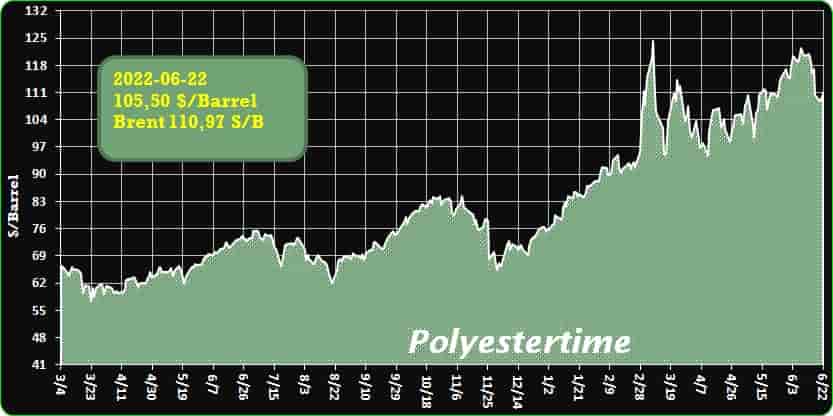
-OCSiAl expands graphene nanotube production capacities to Europe
The new synthesis facility near Belgrade, Serbia, will be launched in the first half of 2023, with a planned capacity of 40 metric tonnes/year. Production will be leveraged for various polymers and nanotube dispersions to boost EV battery density.
OCSiAl (Leudelange, Luxembourg and Columbus, Ohio, U.S.) is expanding its graphene nanotube production capacities in Europe through the launch of new synthesis facility near Belgrade, Serbia, in the first half of 2023, with a planned capacity of 40 metric tonnes/year. Plastics-Recycling – Hydrogen-electrolyzers
According to the company, the facility is to become the core of the graphene nanotube industrial hub and will be accompanied by production lines of nanotube concentrates for various polymers and nanotube dispersions to boost energy density of electric vehicle (EV) batteries. Graphene nanotubes can also act as additional reinforcement to composites, providing new properties.
The graphene nanotube synthesis facility in Serbia will leverage OCSiAl’s production technology, which is said to be protected by more than 80 patents and patent applications, and trade secrets. The plant will reportedly contribute to lowering supply chain costs, and will make it possible to deliver European-produced nanotubes and nanotube industrial solutions to customers in the Americas, Europe and the Asia-Pacific.
According to OCSiAl, the nanotube synthesis facility will be accompanied by the production lines of more than 40 nanotube-based concentrates and dispersions designed to simplify industrial handling of nanotubes, to be launched in sequence from 2022-2023. Nanotube-based solutions, says the company, grant a unique combination of previously unachievable properties to most types of elastomers, thermoplastics, thermosets and lithium-ion batteries, that have gained rapid adoption in aerospace, automotive, construction, electronics, packaging and consumer goods. Plastics-Recycling – Hydrogen-electrolyzers
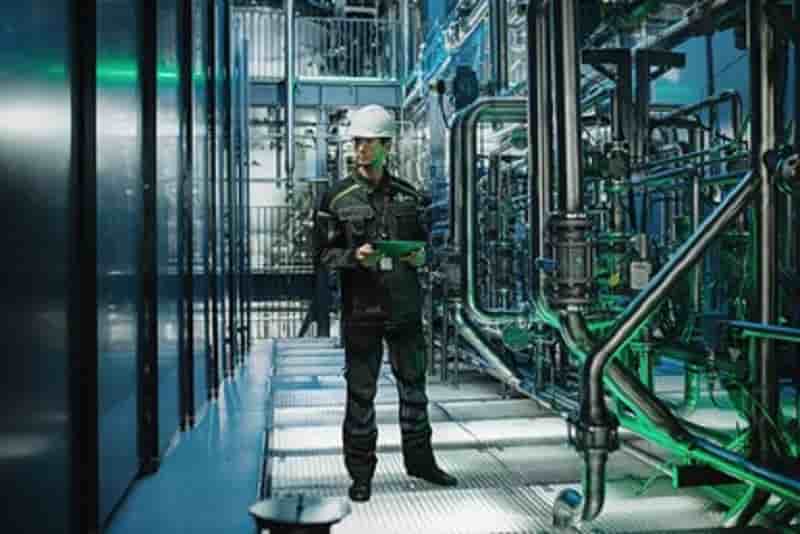
Four partners have collaborated on an industry-leading recycling approach
Closed-loop economy for PET-based multilayer Green Deal-compliant
Further collaborations are planned to optimize the process harnessing water-based adhesive technology Plastics-Recycling – Hydrogen-electrolyzers
Multilayer packaging based on polyethylene terephthalate (PET) can have a bright and sustainable future. This is the message of the strategic partnership of four leading technology companies, whose closed-loop recycling model is sparking new discussions on the role PET-based multilayer will play in tomorrow’s packaging industry.
The European Green Deal requires all packaging to be reusable or recyclable by 2030 – a regulation that is perceived as particularly challenging for multilayer packaging, since its layers first need to be separated before entering recycling streams. However, that perception could be about to change. Sulayr, a recycling company operating in Europe, has successfully commercialized a multilayer recycling process that achieves ‘closed-loop’ status and enables PET to be reused with virtually zero waste. With this, a circular economy practice for PET containing packaging materials already exists, but this process can be improved and become more practical and effective, if the whole value chain works together with the target to make the separation of the layers easier.
Industrial adhesives specialist BASF, packaging machinery OEM Bobst and films expert Evertis are supporting Sulayr in this endeavour. Together, the companies form a strategic partnership combining expertise from across the entire packaging value chain. Their collaborative contributions are key to the success of this impressive recycling process, and its potential for adoption at a bigger scale.
At the core of the process is a multilayer film produced by Evertis, comprising PET and polyethylene (PE) layers, laminated with a BASF’ Epotal® water-based adhesive and processed with a Bobst coater. Multilayer films are used for various packaging materials; after use, the waste is delivered to sorting facilities. Sulayr can use the so-called waste as raw material, ensuring a closed-loop. The company separates the multilayers and makes the PET available for re-use, with recycled PET delivered to Evertis and other film producers who then restart the cycle. Plastics-Recycling – Hydrogen-electrolyzers
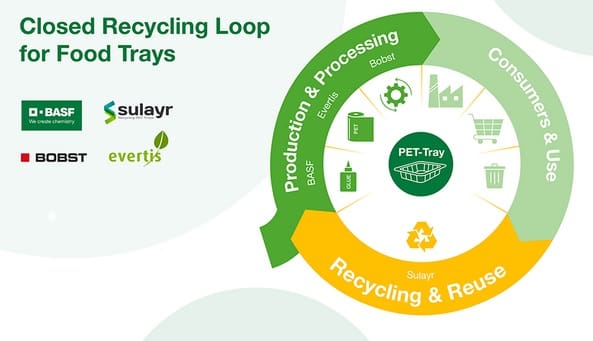
Prioritizing the replacement of environmentally polluting polyester in textiles has led to Swedish Renewcell and Swiss HeiQ signing a strategic partnership to manufacture circular HeiQ AeoniQ cellulose filament yarn from textile-to-textile recycled CIRCULOSE® pulp supplied by Renewcell. This partnership enables the incorporation of recycled raw materials in the most modern, climate positive and environmentally friendly yarn production process to enable 100% circularity in the textile industry.
Capitalizing on their shared vision of a circular and bio-based textile industry, HeiQ and Renewcell have joined forces to commercialize 100% circular and biobased high-tenacity filament yarns as a viable replacement for fossil-based fibers like nylon and polyester at scale. Promising results in initial tests using Circulose® as a feedstock for production of HeiQ AeoniQ yarn create an opportunity to for collaboration between the partners in their effort to lead the current textile industry transformation, positioning both companies and Europe as a pioneer region incorporating recycled raw materials in the most modern and environmentally friendly yarn production processes that allow true circularity in the textile industry. Plastics-Recycling – Hydrogen-electrolyzers
Circulose® – a Circular Cellulose
Circulose® is a branded dissolving pulp product that Renewcell makes from 100% textile waste, such as worn-out jeans and production scraps. Dissolving pulp cellulose is what the textile industry uses to make viscose, lyocell, modal, acetate other types of regenerated fibers (also called ‘man-made cellulosic fibers’). The only difference with Circulose® is that it’s made from textile waste instead of wood. Cellulose is the most abundant organic polymer in the world. It’s what makes up the cell walls of most plants and trees. The purest cellulose found in nature is cotton.
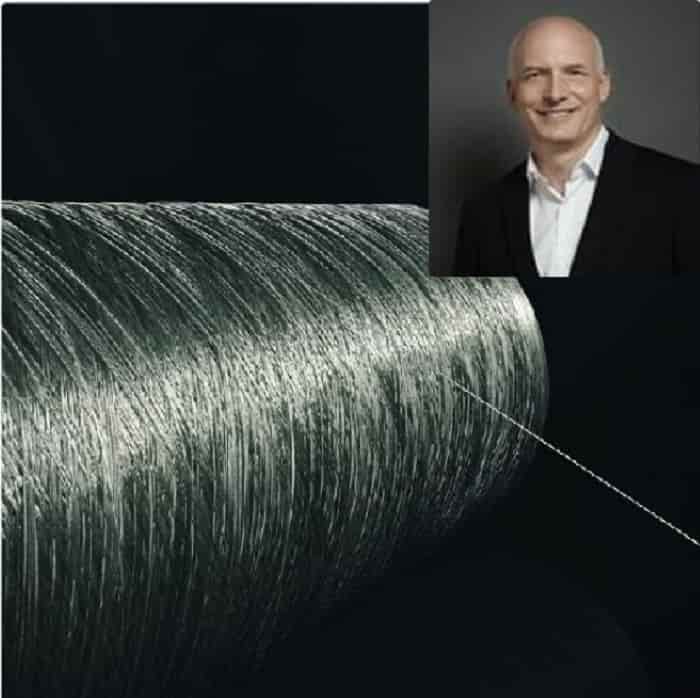
-HDPE for Machine Direction and Biaxially Oriented Films
Nova Chem’s new Surpass HPs153-A said to exhibit exceptional stability due to its broad orientation window. Plastics-Recycling – Hydrogen-electrolyzers
A highly specialized HDPE resin has been launched by Nova Chemicals for the production of 100% high-density machine direction and biaxially oriented films. Due to its broad orientation, Surpass HPs153-A boasts exceptional stability during production run or manufacturing on commercial-scale inline MDO blown film equipment.
MDO-HDPE films can be used to replace BOPP and BOPET to produce fully recyclable all-PE laminates with high stiffness to maintain registration for printing and converting, excellent heat resistance to minimize shrinkage during packaging conversion, and outstanding clarity. According to the company, its innovative technology marks a major advancement in the pursuit of a plastics circular economy, as it enables recyclable all-PE packaging. Says Owen Lightbody, application development and circular economy leader,“Nova Chemicals has a bold ambition to create a circular economy for plastic materials. Being able to produce HDPE-based oriented films is a significant step towards our industry’s goal of 100% recyclable packaging.”
Oriented film structures allow easy-to-recycle all-PE packaging to replace traditional mixed material packaging which is not recyclable. In addition, orientation of PE films allows for property improvements otherwise not attainable in blown or cast films such as enhanced stiffness, toughness, and optical properties. Oriented films are ideal for use in food packaging, heavy duty shipping sacks, e-commerce and other demanding applications.
As reported in 2021, Nova introduced its transformative BOPE-HD technology that enables the manufacture of all-PE, recyclable multilayer film structures with significantly improved physical performance versus blown film. Surpass TX150-A was the world’s first HDPE resin designed specifically for the demanding tenter frame process. It enables an all-PE biaxially oriented print web, which can be laminated to an all-PE sealant web for complete recyclability. Plastics-Recycling – Hydrogen-electrolyzers
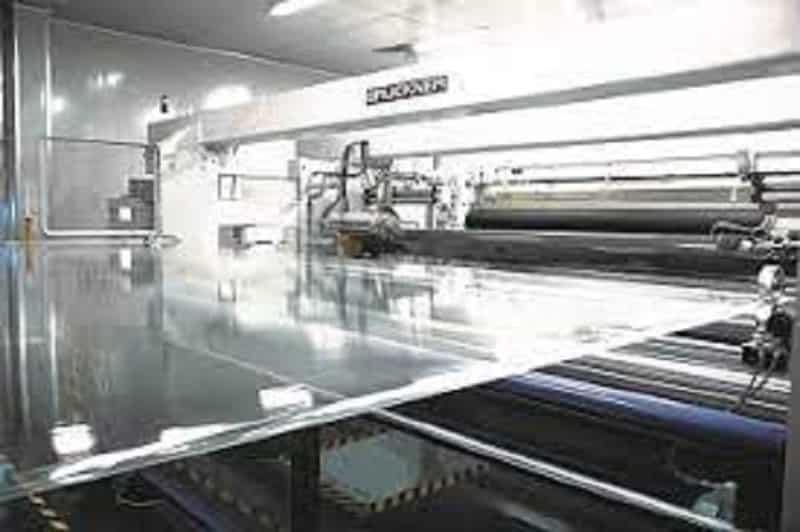
-Partnership Aims to Create Value Chain for Renewable-Attributed MDI
Covestro, petrochemical company SK geo centric, and Neste collaborate to enable production of polyurethane raw materials based on renewables.
Covestro, South Korean petrochemical company SK geo centric, and Neste announced today a collaboration to enable the production of a major polyurethane raw material based on renewable raw materials via mass balance. The cooperation will see Neste provide SK geo centric with renewable Neste RE, an ISCC-certified feedstock for polymers and chemicals made from 100% renewable raw materials such as waste and residue oil and fats. Plastics-Recycling – Hydrogen-electrolyzers
SK geo centric will process this feedstock into benzene at the company’s facilities in South Korea and supply it to Covestro for use as a raw material for methylene diphenyl diisocyanate (MDI) at its site in Shanghai. MDI is a key raw material for the manufacture of rigid polyurethane foam, used as an insulating material for buildings and in the cold chain. It helps to save CO2 emissions and reduce energy consumption during its product life, said Covestro in the news release.
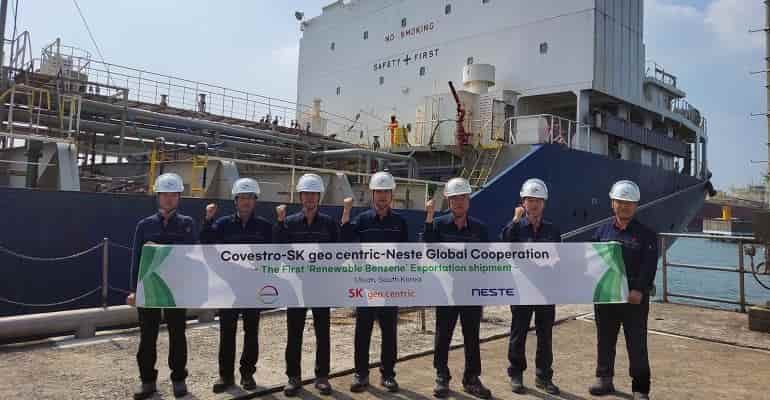
-Gneuss MRS extrusion technology nominated for Plastics Recycling Awards Europe 2022
Gneuss, a family-owned company based in Bad Oeynhausen, Germany, has been shortlisted for the Plastics Recycling Awards 2022 in the category of Recycling Machinery Innovation with its unique MRSjump extrusion technology.
The MRSjump is a new extruder which uses the operating principle of the Gneuss MRS technology however with a vastly expanded devolatilising capacity.
Originally aimed at post-consumer PET recycling, the MRSjump extruder offers PET processors not only unparalleled decontamination performance but also the possibility of retaining or even lifting the intrinsic viscosity of the material without the need for any heat treatment of the material, either before or after extrusion.
The phenomenal devolatilisation performance of the MRSjump extruder offers massive advantages for post-consumer polymer recycling generally, especially for recycling polymers such as polyolefins and PS for food contact applications (to FDA and EFSA) where decontamination of the polymer is important. As in the case of PET, due to the decontamination performance of the extruder, additional, energy intensive heat treatment of the material can be avoided. Plastics-Recycling – Hydrogen-electrolyzers
This performance was made possible by enlarging the MRS multiple screw design. Both the surface area of the polymer melt under vacuum and the area exchange rate have been drastically increased.
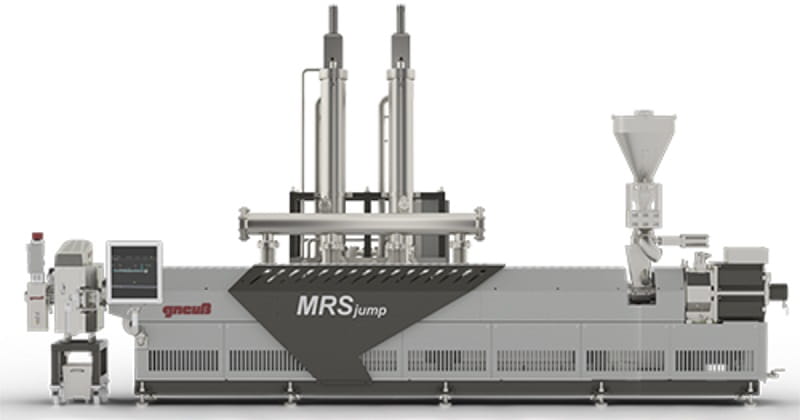
-EU targets tenfold increase in production of hydrogen electrolyzers by 2025
The European Commission launched an initiative June 16 to increase the European Union’s green hydrogen electrolzyer manufacturing capacity tenfold by 2025, said SP.
The Electrolyzer Partnership, first announced in May, will bring together manufacturers and component suppliers to ramp up the production of electrolyzers — the technology used to produce renewable-powered hydrogen — to 17.5 GW per year from an estimated 1.75 GW today. Plastics-Recycling – Hydrogen-electrolyzers
The initiative is linked to the commission’s REPowerEU plan — its wide-ranging strategy to end dependence on Russian fossil fuels, which includes an aim to reach 10 million tonnes of annual domestic hydrogen production by 2030, requiring between 90 GW and 100 GW of electrolyzer capacity.
“Hydrogen is an essential part of Europe’s future energy sovereignty,” Frans Timmermans, executive vice president for the European Green Deal at the commission, said in a statement. “The speed of development of the European hydrogen sector shows that we can decarbonize our economy and secure our independence from Russian fossil fuels.”
The Electrolyzer Partnershp was launched at the fourth meeting of the commission’s European Clean Hydrogen Alliance, which brings together more than 1,600 organizations to support the deployment of renewable and low-carbon hydrogen.
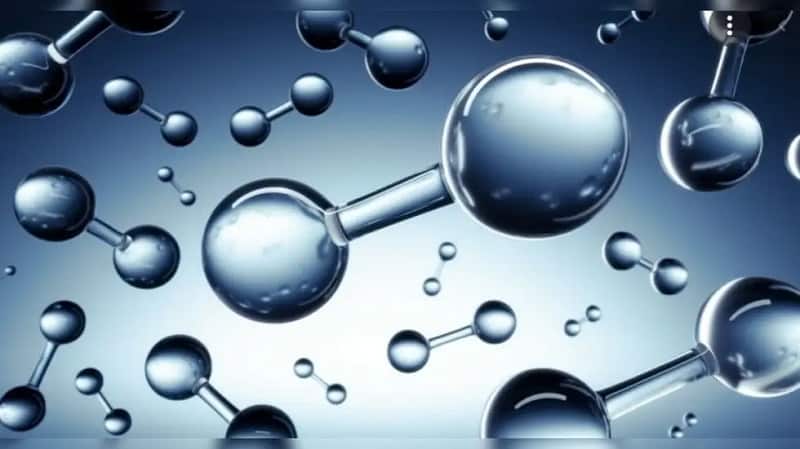
-SIBUR and REO to expand cooperation in the field of plastic recycling
SIBUR has signed a deal with recycler Russian Environmental Operator (REO) for the supply of recycled polyethylene terephthalate (rPET) bottles and packaging as feedstock for production of food-grade rPET granules at Polief facility in Bashkortostan, Russia, said the company. Plastics-Recycling – Hydrogen-electrolyzers
Thanks to the supply of electronic equipment to the production of SIBUR, it is planned to send up to 600 million plastic bottles for processing annually.
To fulfill its obligations under the agreement, REO is implementing an investment project for the production of PET flakes from used food packaging. It is planned that PPC will purchase bottles at sorting, send them for processing and sell the resulting PET flex to SIBUR. The enterprise where the bottles will be processed is located in the Chelyabinsk region.
Transparent and blue flakes will be supplied to SIBUR’s Bashkir enterprise POLIEF for the production of food-grade rPET granules under the Vivilen brand with a recycled content of up to 25%. This contract provides a third of the company’s need for PET flex after reaching the design capacity. Plastics-Recycling – Hydrogen-electrolyzers
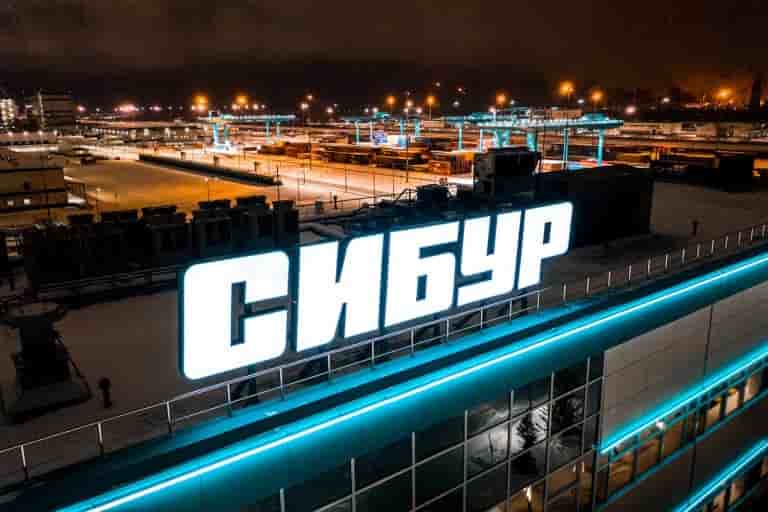
Plastics-Recycling – Hydrogen-electrolyzers
